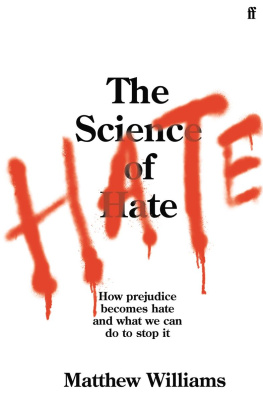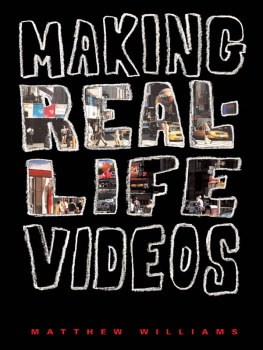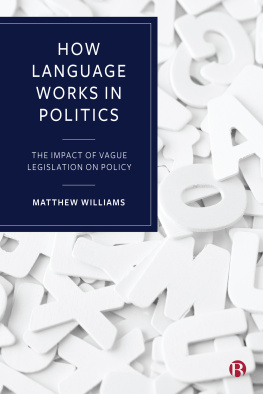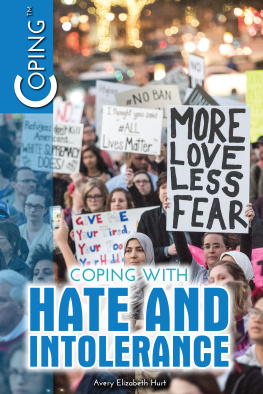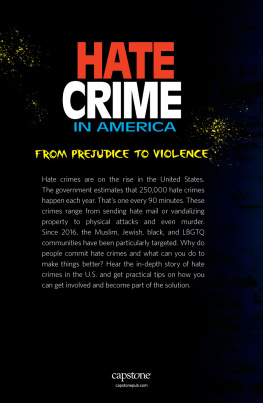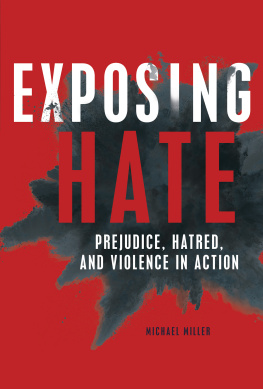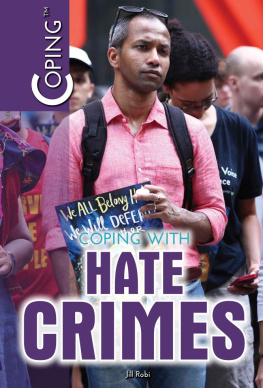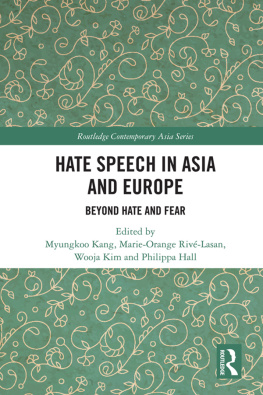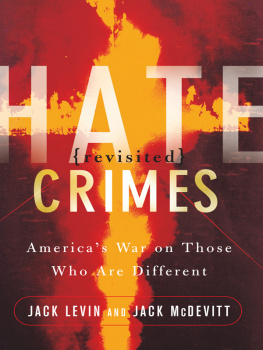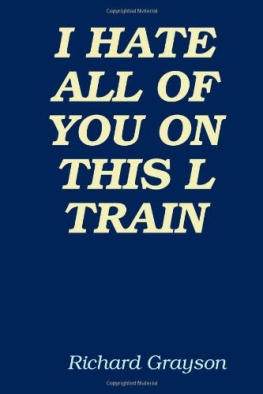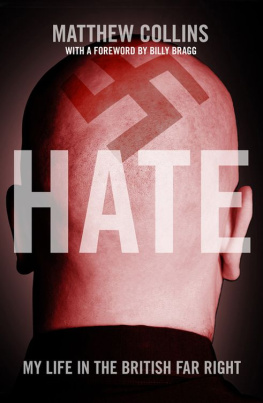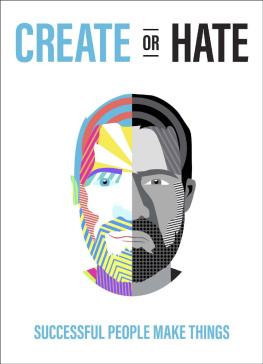Matthew Williams - The Science of Hate: How prejudice becomes hate and what we can do to stop it
Here you can read online Matthew Williams - The Science of Hate: How prejudice becomes hate and what we can do to stop it full text of the book (entire story) in english for free. Download pdf and epub, get meaning, cover and reviews about this ebook. year: 2021, publisher: Faber & Faber, genre: Romance novel. Description of the work, (preface) as well as reviews are available. Best literature library LitArk.com created for fans of good reading and offers a wide selection of genres:
Romance novel
Science fiction
Adventure
Detective
Science
History
Home and family
Prose
Art
Politics
Computer
Non-fiction
Religion
Business
Children
Humor
Choose a favorite category and find really read worthwhile books. Enjoy immersion in the world of imagination, feel the emotions of the characters or learn something new for yourself, make an fascinating discovery.
- Book:The Science of Hate: How prejudice becomes hate and what we can do to stop it
- Author:
- Publisher:Faber & Faber
- Genre:
- Year:2021
- Rating:5 / 5
- Favourites:Add to favourites
- Your mark:
- 100
- 1
- 2
- 3
- 4
- 5
The Science of Hate: How prejudice becomes hate and what we can do to stop it: summary, description and annotation
We offer to read an annotation, description, summary or preface (depends on what the author of the book "The Science of Hate: How prejudice becomes hate and what we can do to stop it" wrote himself). If you haven't found the necessary information about the book — write in the comments, we will try to find it.
The Science of Hate: How prejudice becomes hate and what we can do to stop it — read online for free the complete book (whole text) full work
Below is the text of the book, divided by pages. System saving the place of the last page read, allows you to conveniently read the book "The Science of Hate: How prejudice becomes hate and what we can do to stop it" online for free, without having to search again every time where you left off. Put a bookmark, and you can go to the page where you finished reading at any time.
Font size:
Interval:
Bookmark:

To Dean
Ive never talked about my attack. But now feels like the right time. It was a summer holiday weekend in the late nineties. One of those weekends you look forward to for months. I was in London visiting friends on a blisteringly hot day. It was my last chance to see them before I started my postgrad degree in journalism, so I made the most of it. The morning was spent basking in Regents Park and we headed for lunch around midday. Many of us had just finished our final undergraduate exams so we went somewhere that served cool beer to celebrate. We ate like kings and imbibed enough to fuel a gush of reminiscing over good times at university. After one too many for a lunchtime, we convinced ourselves to carry on the party. The destination of choice was a bar on Tottenham Court Road well known for the diversity of its clientele.
A few hours into the sprawling celebration I stepped out of the bar to take five in the heavy London air. I was struck by the bright azure sky and took a moment for my eyes to adjust. A guy standing in the distance on the shimmering asphalt gradually came into focus. He sauntered over and asked for a light. Before I could flick the flint on my Zippo two other guys jumped me. All three had been waiting patiently for their target. This was something planned, considered, not something that came about through circumstance; not a crime of opportunity.
In an instant, without having to think, I knew what had happened. I was a victim of a hate crime. I remember the metallic tang of the blood pouring from my split lip. The din resonating in my head from the precision-placed punch. I got a glimpse of the three of them, laughing, enjoying their victory. I turned away, afraid of appearing resilient giving them their prize in the hope they would move on. Some may call me a coward for not retaliating I certainly felt like one. But all I could think of in those first few seconds was minimising the violence, and protecting those coming out behind me. Then one of them spat it out:
Fucking batty-boy.
That was all the confirmation I needed. I recognised the game I was part of. They called it queer-bashing, a sport played up and down the country, where the players on one team wait outside well-known gay bars for the players on the opposing team to emerge inebriated, less able to defend themselves when the game starts and the attack comes. The gamification of hate crime.
This felt different to one of those random acts of violence fuelled by alcohol on a Saturday night. This wasnt senseless violence. The attack was a message. What that was I couldnt fathom in that moment. But in the days and weeks following I would return to the attack again and again it filled my thoughts until there was no space for anything else. An attack on your identity will do that. You dont ask Why me? like most victims of violent crime. You know why me, and that is much more insidious. It gets right under your skin.
I couldnt stop the deluge of questions flooding my head. Did my attackers actually hate what I was? Is hate too strong a word for it? Did the attack affirm the heterosexuality of the guy who punched me? Or was it simply to do with protecting their turf? A signal to me and others that my sort was not welcome in their city. Whatever the motive (or mix of motives), the violence made me question who I was, my place in society, and my relationship.
Ive not held my partners hand in public since that day. I look back and feel like I was cheated of intimacy. The attack on my identity made me feel so unsafe that it reshaped me. The feeling of vulnerability was constant. It became tied up with my person. I lost something that day, and it still feels like I will never get it back.
The actions of those three men not only changed my personal life, but my professional life too. Soon after the attack I decided to abandon my desire to become a journalist and I signed up for a masters degree in criminology. The questions I had about my attack preoccupied me and the science was the place to find the answers.
My postgraduate studies were illuminating in ways I both did and did not expect. Most of the year was spent pacing up and down dimly lit library stacks, blowing dust off mildew-ridden books and losing myself in them. This I anticipated. In between the scholarly activity I took a part-time job in an internet cafe that provided a less formal and more unexpected learning experience. As the cafe rarely had customers I had a lot of time on my hands. To pass away the hours I took advantage of the high-speed internet access. It didnt take long before I witnessed my first incident of virtual hate. A small group of chatroom users went on a rampage, abusing others with racial epithets. Then they turned on me. Homophobic slurs flooded my screen.
In the same year I had experienced hate both on the streets and online. These experiences were formative and created in me a drive that wouldnt let up. To fuel it I signed over four years of my life to embark on a PhD. This was the start of my journey to make sense of the motivations of my attackers and others like them. That journey, on which I continue to travel, has involved looking into some of the darkest parts of the human mind to work out what makes a prejudiced thought turn into hateful and sometimes lethal action.
Is hate hard-wired? I asked myself a similar question early in my journey: Is there something in the biology of my attackers that is somehow responsible for their act of hate against me? The possibility was both comforting and disturbing. It would allow for a clear separation of myself from my attackers but it would mean hate is an even more intractable problem. The question serves as a good place to introduce this book. The nature versus nurture debate is as fundamental to understanding hate as it is to understanding every other part of what makes us who we are.
The majority of hate criminals are rather mundane and share similar characteristics to the general population. To me and you. They are not all pathological, not all monsters as portrayed in the mass media. The same foundations for prejudice and hate are present in everyone.
We all have a deep-rooted preference for people that we think are like us. This trait is common not just to humans, but to other species too. Far back in human history our ancestors developed this trait to ensure their groups flourished; forging tight bonds that fostered trust and cooperation was essential to survival. While less important to survival today, there is no getting away from the fact, however uncomfortable it might make us feel, that humans are predisposed to favour people from their own group over people from outside groups.
Scientists are now able to show how a possible consequence of this human trait can be observed in our brains. Long gone are the days when doctors had to crack skulls to take a look under the hood. Scanning technology such as functional Magnetic Resonance Imaging (fMRI), the type of scan a patient may have to identify the presence of a tumour, is now being used to produce three-dimensional images of the brain that show real-time reactions to external stimuli such as photographs. Under certain conditions, a predisposed preference for us can turn into a learned aversion towards them, and the brain signals involved in this process have been found using this scanning technology.
People who say they dont hold prejudiced views of black people can be betrayed by their brain signals. Participants in neuroscience studies have been shown to exhibit differences in brain activity when they look at pictures of white and black faces. What is startling about this finding is that the area of the brain that shows the highest correlation with unconscious prejudice, the amygdala, is associated with fear and aggression (see first brain image in plate section). The amygdala is where prepared fears (fears we learn more quickly) and learned fears are formed. Think of spiders and snakes versus exams and the dentist. The science shows the amygdala can generate a fear reaction when it processes images of people with darker skin tones (and this applies to both white and black study participants more on this in Chapter 3). But it would be a mistake to assume we are born with parts of our brains pre-coded to react in this way.
Font size:
Interval:
Bookmark:
Similar books «The Science of Hate: How prejudice becomes hate and what we can do to stop it»
Look at similar books to The Science of Hate: How prejudice becomes hate and what we can do to stop it. We have selected literature similar in name and meaning in the hope of providing readers with more options to find new, interesting, not yet read works.
Discussion, reviews of the book The Science of Hate: How prejudice becomes hate and what we can do to stop it and just readers' own opinions. Leave your comments, write what you think about the work, its meaning or the main characters. Specify what exactly you liked and what you didn't like, and why you think so.

